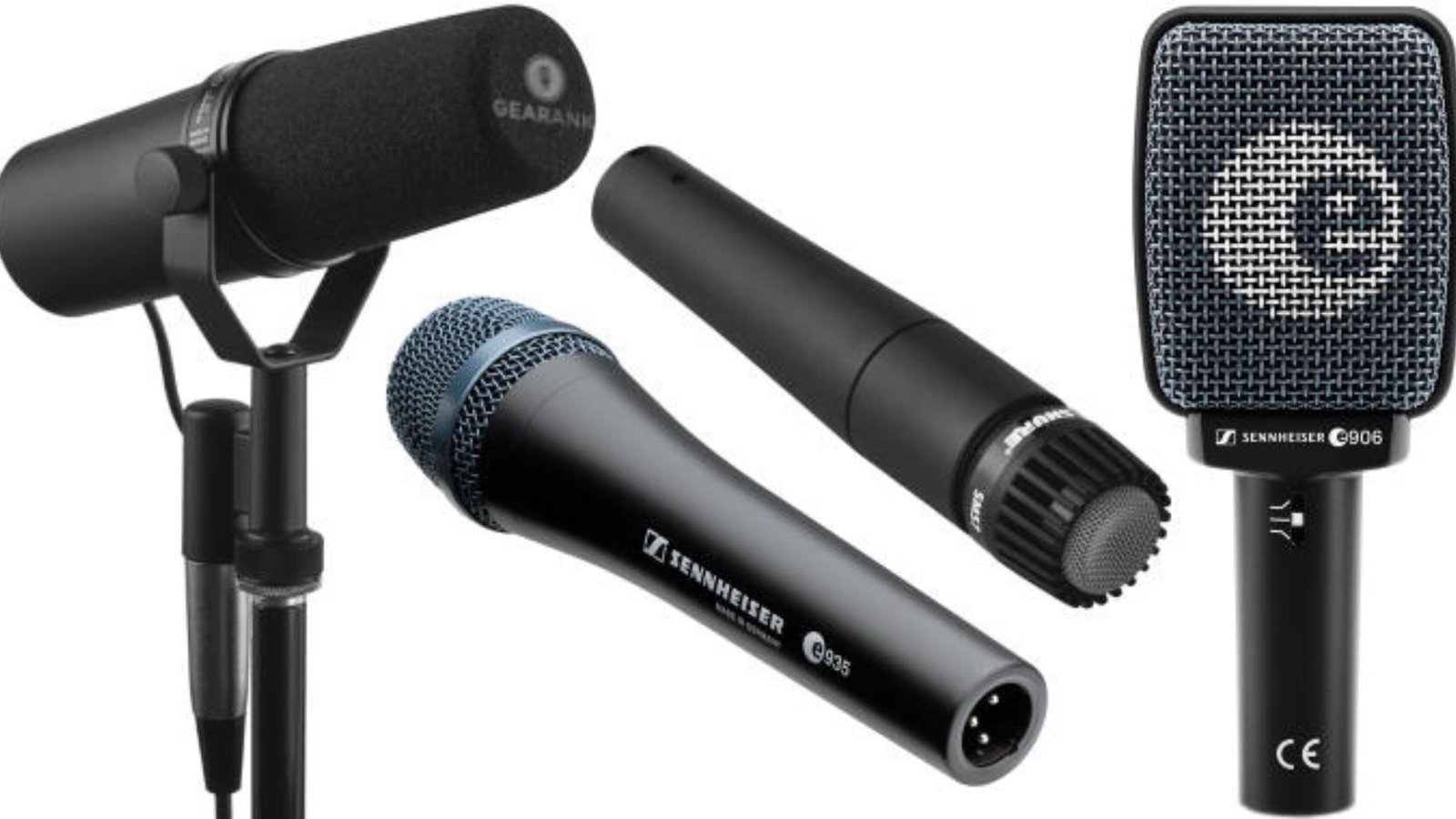When capturing high-quality audio, choosing the best microphones for recording music is essential. Whether you’re a seasoned musician or just starting out, understanding the different types of microphones and how they can elevate your sound is crucial. In this article, we’ll walk you through some of the top choices, explaining why they are the go-to options for many recording artists. Let’s get in!
Why Microphone Choice Matters
Selecting the right microphones for recording music can make or break your recording. The microphone is the first link in the recording chain, so the quality of your mic directly influences the overall sound. When choosing a microphone, consider factors like the type of music you’re recording, the environment, and your budget.

Dynamic Microphones
Dynamic microphones are a staple in the world of recording music. These mics are known for their durability and ability to handle high sound pressure levels. If you’re recording loud instruments like drums or electric guitars, a dynamic microphone is your best bet. The Shure SM57 and SM58 are classic examples of dynamic microphones that have been used in countless recordings. They are affordable, reliable, and produce a sound that is clear and punchy, making them ideal for various recording situations.
Condenser Microphones
For a more detailed and accurate capture of sound, condenser microphones are the way to go. These microphones are sensitive to a wider range of frequencies and can capture the nuances in vocals and acoustic instruments. They require a power source, usually provided by phantom power from your audio interface. The Audio-Technica AT2020 and Neumann U87 are popular choices among professionals. These microphones for recording music deliver crisp and clean sound, making them perfect for studio environments.
Ribbon Microphones
Ribbon microphones are less common but offer a unique, vintage sound that many artists love. They are especially good at capturing the warmth and smoothness of string instruments and vocals. While they are more fragile than dynamic or condenser mics, they provide a distinctive sound that can add character to your recordings. The Royer R-121 is a standout ribbon microphone that has been used in many professional recordings.
USB Microphones
If you’re just starting out or need a simple setup, USB microphones are a fantastic option. They are easy to use, as they plug directly into your computer without needing additional equipment. These microphones for recording music are perfect for home studios or when you’re on the go. The Blue Yeti and Audio-Technica AT2020USB+ are two popular models that offer great sound quality for their price.
Lavalier Microphones
Lavalier microphones, also known as lapel mics, are small and discreet, making them ideal for capturing vocals in live performances or video recordings. While not traditionally used for studio music recording, they can be useful in specific situations where a large microphone would be obtrusive. These microphones for recording music offer convenience and portability, with models like the Rode SmartLav+ providing good sound quality.
Shotgun Microphones
Shotgun microphones are highly directional and are often used in film and video production. However, they can also be useful in recording music, particularly in capturing specific sounds or instruments in a live setting. These microphones excel at isolating sound from the background, making them ideal for outdoor recordings. The Sennheiser MKH 416 is a top choice in this category, offering precise and clear sound capture.
Multi-Pattern Microphones
Some microphones offer multiple polar patterns, allowing you to switch between different recording modes depending on your needs. These versatile microphones are great for artists who record a variety of instruments and vocals. The AKG C414 is a popular multi-pattern microphone that provides flexibility and high-quality sound, making it a favorite among recording engineers.
Microphone Accessories
To get the most out of your microphones for recording music, consider investing in accessories like pop filters, shock mounts, and mic stands. These tools help reduce unwanted noise and vibrations, ensuring that your recordings are as clean as possible. A good pop filter can prevent harsh plosive sounds from ruining a vocal track, while a shock mount will keep your microphone stable and free from handling noise.
Choosing the Right Microphone for Your Needs
Ultimately, the best microphones for recording music depend on your specific needs and preferences. Whether you’re looking for a durable dynamic mic, a sensitive condenser, or something in between, there’s a microphone out there for every recording situation. Take the time to test different models, and don’t be afraid to invest in quality equipment—it will pay off in the long run with better-sounding recordings.
Conclusion
In the world of music recording, the microphone you choose is your gateway to capturing the perfect sound. With so many options available, from dynamic to condenser, and even ribbon microphones, selecting the right one can be daunting. However, by considering your recording needs and environment, you can find the best microphones for recording music that will help you create professional-quality tracks. Remember, the microphone is just one piece of the puzzle, but it’s a crucial one that can significantly impact your final product.




